The Well-Tempered Ear
Today is World Piano Day — so play, listen, watch, celebrate
1 Comment
PLEASE HELP THE EAR. IF YOU LIKE A CERTAIN BLOG POST, SPREAD THE WORD. FORWARD A LINK TO IT OR, SHARE IT or TAG IT (not just “Like” it) ON FACEBOOK. Performers can use the extra exposure to draw potential audience members to an event. And you might even attract new readers and subscribers to the blog.
By Jacob Stockinger
World Piano Day — established in 2015 — falls on the 88th day of the year because the standard piano keyboard has 88 keys.
Because 2024 is a Leap Year, World Piano Day is being celebrated a day later than usual — on today, March 28.
For more background and past playlists, see:
https://en.wikipedia.org/wiki/Piano_Day
There are lots of free celebrations online, to say nothing of just sitting down at a piano and playing or listening to someone else play or going to your library of CDs and LPs or using your streaming service.
Here is a list of live international events from March 12-April 7, complete with information links, to concerts and other events marking Piano Day around the world.
Some presenters have put together their own special celebrations. DG is offering a 30-day free trial to its Stage+ streaming site to mark the occasion.
Deutsche Grammophon, the world’s oldest classical record company, has a terrific stable of prize-winning, critically acclaimed pianists, includes Maurizio Pollini who died last Saturday, as well as Lang Lang, Yuja Wang, Vikingur Olaffson, Maria Joao Pires, Seong-Jin Cho, Grigory Sokolov, Alice Sara Ott, Daniil Trifonov, Hélène Grimaud and Bruce Liu.
Check it out. Here is a link to DG’s celebration:
You can also find many things to watch and hear — concerts, documentaries — for this year and from past year of YouTube:
https://www.youtube.com/results?search_query=World+Piano+Day
And at the bottom, from World Piano Day 2023, is a YouTube video with 88 minutes of piano music from masters old and current — including Vladimir Horowitz and Arthur Rubinstein — to celebrate World Piano Day:
Will you celebrate World Piano Day?
Do you play the piano or did you take piano lessons?
Do you have a favorite pianist?
Do you have a favorite composer and favorite piece for the piano?
The Ear wants to hear.
Tags: #BlogPost, #BlogPosting, #FacebookPost, #FacebookPosting, #Prize-Winning, #YouTubevideo, 2023, 2024, 88, acclaim, Adfrica, African, Apple, Apple Music, Apple Music Classical, Arrau, Arts, Ashkenazy, asian, audience, Barenboim, Baroque, Beethoven, black, blog, Bruce Liu, CD, celebrate, celebration, Chamber music, China, Chinese, Cho, Chopin, Classical music, Columbia, composer, Concert, concerto, critic, critical, critically acclaimed, day, Decca, Deutsche Grammophon, DG, documentary, Early music, establish, Europe, European'Asia, event, Facebook, favorite, Fujita, Gilels, globe, Google, Google Search, Grigory Sokolov, Grimaud, hear, Helene Grimaud, Horowtz, Hough, Iceland, Icelandic, international, Jacob Stockinger, Japan, Japanese, Johann Sebastian Bach, Keyboard, keys, Kissin, Korean, Lang Lang, Leap Year, Levit, liberty, library, Lim, link, listen, Liu, LP, Ludwig van Beethoven, Madison, Mao, Mao Fujita, Maria Joao Pires, Maurizio Pollini, Mozart, Music, music students, Naxos, ok, Orchestra, OS, Ott, Perahia, Philips, Pianist, Piano, piano lessons, piano music, piece, Pires, play, playlist, Polish, Pollini, popular, RCA, repertoire, repertory, Richter, Rubinstein, Russia, Russian, Schiff, share, Sokolov, Sonata, SONY, Sony Classical, South America, South American, South Korea, South Korean, stage, standard, stream, streaming, streaming service, symphony, tag, The Ear, The Well-Tempered Ear, today, Trifonov, Uchida, United States, universal, University of Wisconsin–Madison, Van Cliburn, Vikingur Olafsson, Wang, Well-Tempered, white, Wikipedia, Wisconsin, Wolfgang Amadeus Mozart, Wong, world, World Piano Day, year, YouTube, Yuja Wang, Yunchan Lim
Here are Gramophone’s 12 best recordings for March
2 Comments
PLEASE HELP THE EAR. IF YOU LIKE A CERTAIN BLOG POST, SPREAD THE WORD. FORWARD A LINK TO IT OR, SHARE IT or TAG IT (not just “Like” it) ON FACEBOOK. Performers can use the extra exposure to draw potential audience members to an event. And you might even attract new readers and subscribers to the blog.
By Jacob Stockinger
Gramophone magazine, based in the UK, is probably the best and most influential periodical about classical music for the general public.
Every month, the editors pick a recording of the month with 11 others to make up a dozen great opportunities for listening. The reviews — which often favor British performers and composers — include links to excerpts on streaming services.
Would you like to hear the prolific super-virtuoso pianist Marc-André Hamelin play his own compositions, including his Variations on a Theme of Paganini? See the YouTube video at the bottom for an astonishing display of pianism.
Or an obscure opera by Leos Janacek?
Or historic recordings of the violinist Joseph Szigeti?
Or the contemporary composer Nicola LeFanu?
Maybe a spring bouquet of songs about flowers?
Then check out this month’s choices for the Best Of.
And if these reviews interest you, check out the other stories and reviews at the bottom of the Gramophone webpage.
Here is a link:
Tags: #BlogPost, #BlogPosting, #FacebookPost, #FacebookPosting, #WebPage, #YouTubevideo, 2024, Apple, Apple Music, Apple Music Classical, Arts, Asia, asian, astonishing, audience, Baroque, Bartok, Beethoven, Belgium, best, best of, Bloch, blog, bouquet, British, Britten, Canada, Canadian Broadcast System, CBC, Cello, Chamber music, choral music, Classical music, composer, Concert, concerto, conductor, contemporary composer, contemporary music, critic, Curtis Institute, Curtis Institute of Music, Debussy, display, Dvorak, Early music, Europe, Facebook, favor, features, flowers, Google, Google Alert, Google Search, Gramophone, Great Britain, Handel, Haydn, hear, historic, Hungarian, Hungary, influence, influential, interest, IOS, Ives, Jacob Stockinger, Jacqueline Fontyn, Janacek, Johann Sebastian Bach, Joseph Szigeti, label, Lassus, Lera Auerbach, link, Living composer, Ludwig van Beethoven, magazine, Marc-André Hamelin, march, Marin Alsop, Milhaud, month, Mozart, Music, music review, New Music, Nicola LeFanu, opera, Orchestra, Paganin, performance, performer, periodical, pianism, Pianist, Piano, Piano Trio, Prokofiev, prolific, public, recorded music, reviews, Russia, Russian, share, singer, Singing, Sonata, song, Spring, stories, story, Stravinsky, stream, streaming, symphony, tag, technique, The Ear, theme and variations, trio, UK, United States, vaughan williams, Viola, Violin, violinist, virtuosic, virtuoso, vocal music, Weinberg, Wolfgang Amadeus Mozart, you, YouTube
Is impromptuing the impromptu ok?
2 Comments
PLEASE HELP THE EAR. IF YOU LIKE A CERTAIN BLOG POST, SPREAD THE WORD. FORWARD A LINK TO IT OR, SHARE IT or TAG IT (not just “Like” it) ON FACEBOOK. Performers can use the extra exposure to draw potential audience members to an event. And you might even attract new readers and subscribers to the blog.
By Jacob Stockinger
Recently, The Ear heard an unusual version of the very familiar Fantaisie-Impromptu for solo piano by Chopin.
It was played by the 35-year-old, prize-winning Russian pianist Pavel Kolesnikov (below). You can hear his performance in the YouTube video at the bottom.
What made it unusual is that the pianist took liberties and added passing notes or runs and a melodic overlay to part of it.
It seemed odd at first.
Why mess with Chopin, who was such a meticulous crafter of beauty?
But when you think about it, it makes a certain sense.
It is, after all, an impromptu. And an impromptu is based on and suggests improvisation.
So why not impromptu the impromptu? Why not add some extra spontaneity or variation, since many impromptus take the form of a theme with variations and elaborations.
These days performers are even expected to elaborate the Baroque repertoire, especially Bach and Handel. And it is becoming standard practice to do so with Mozart’s piano sonatas and concertos.
Now the Fantaisie-Impromptu is by far the most popular of Chopin’s four impromptus, no doubt in part because its lovely middle section melody inspired the classic Vaudeville pop song “I’m Always Chasing Rainbows.”
But the Fantaisie-Impromptu, the last composed, is The Ear’s least favorite of the four impromptus that Chopin wrote. And Chopin apparently didn’t like it much either. He wanted it to remain unpublished and destroyed.
It made me want to know: What might the same pianist do with the other three great impromptus by Chopin?
Or the famous ones by Schubert and the less famous ones by Fauré?
Listen to the 5-minute performance and tell The Ear what you think of the ornamented version that Kolesnikov plays?
Which one of four is your favorite Chopin impromptu?
What impromptus by Schubert and Fauré do you especially like? Would changing the score work with them?
What other impromptus by other composers do you suggest listening to and playing — and perhaps even ornamenting?
The Ear wants to hear.
Tags: #BlogPost, #BlogPosting, #FacebookPost, #FacebookPosting, #Prize-Winning, #YouTubevideo, Apple, Arts, audience, Bach, Baroque, beauty, Beethoven, blog, Cello, change, Chopin, choral music, Classical music, composer, Concert, concerto, Craft, Early music, elaboration, eloaborate, Facebook, famous, Fantaisie-Impromptu, Faure, favorite, Google, Google Alert, great, Handel, hear, impromptu, improvisation, improvise, Jacob Stockinger, Johann Sebastian Bach, kliberty, liberties, link, listen, Ludwig van Beethoven, Madison, melody, mess, Mozart, Music, odd, opera, Orchestra, ornament, ornamentation, OS, Pavel Kolesnikov, performance, Pianist, Piano, play, pop music, popular, publish, repertoire, repertory, Russia, Russian, Schubert, score, sense, share, solo]performer, Sonata, spontaneity, symphony, tag, The Ear, theme, think, United States, University of Wisconsin-Madison School of Music, University of Wisconsin–Madison, unpublished, variations, Vaudeville, version, Viola, Violin, vocal music, want, Wisconsin, Wolfgang Amadeus Mozart, you, YouTube
FREE birthday bash for Johann Sebastian Bach is this Saturday in Madison
4 Comments
PLEASE HELP THE EAR. IF YOU LIKE A CERTAIN BLOG POST, SPREAD THE WORD. FORWARD A LINK TO IT OR, SHARE IT or TAG IT (not just “Like” it) ON FACEBOOK. Performers can use the extra exposure to draw potential audience members to an event. And you might even attract new readers and subscribers to the blog.
By Jacob Stockinger
The Ear thinks of this week’s Bach Around the Clock — which runs March 6-10 — as a double celebration.
The primary one is to mark the 339th birthday of composer Johann Sebastian Bach (below, March 20, 1685-July 28, 1750), whom many consider to be the Big Bang of Western classical music.
The second celebration is to honor the late Madison violist Marika Fischer Hoyt (below), who with help resurrected Bach Around the Clock in Madison after it had been dropped by Wisconsin Public Radio.
Talented, hard-working and congenial, Fischer — who died a year ago of cancer — was a fixture of the local music scene. She was a member of the Wisconsin Chamber Orchestra and spent 20 years playing in the Madison Symphony Orchestra. An outstanding chamber musician, she also helped found and played in the Ancora String Quartet.
An avid proponent of early music using period instruments and historically informed performance practices, Fischer Hoyt helped found and play in the weekly free Just Bach concerts. She performed regularly with the Madison Bach Musicians and with an early music string group she helped found, Sonata à Quattro.
Here is a link to a complete schedule on the BATC website:
The Ear thinks Marika would be very pleased and proud of this year’s event.
It will feature Bach’s original choral and instrumental music in many genres and transcriptions. Soloists and groups of varying sizes will take part. And Bach’s music — so central to the repertoire and all levels of musicianship — will be performed by students (below are members of the Suzuki Strings), by amateurs and by professionals (in the YouTube video at the bottom) — making BATC a truly community-wide celebration of Bach.
The hours for the Birthday Bash concert, which used to run 12 hours, have been cut back to a reasonable and accessible 10 a.m.-5 p.m. at St. Andrew’s Episcopal Church, 1833 Regent St., on Madison’s near west side. But a birthday cake will still be cut at the end.
And in case you want to duck in and out or catch certain performances or performers, here is a full program schedule for Saturday:
https://drive.google.com/file/d/1CIRby29h6wZjyngZgyMPpTrLNiMC_1OR/view
You can find links to all other events and programs — printed in blue — on the main website for the March 6-10 festival.
Performances by performers in their own homes and studios will air online as part of the Virtual Festival held of BATC’s YouTube channel, starting at midnight on this Sunday, March 10. Its runs without a time limit and can be accessed worldwide.
Here is a link to the YouTube channel, which also has past performances
https://www.youtube.com/channel/UCHBRPHSGd_fNECp-qrWsqlQ
Have you attended or heard other Bach Around the Clocks?
What do you think of the celebration?
The Ear wants to hear.
Tags: #BlogPost, #BlogPosting, #FacebookPost, #FacebookPosting, #GoogleAlert, #Hard Work, #YouTubevideo, 2021, 2022, 2023, 2024, accessible, Ancora String Quartet, Android, Arts, attend, Bach Around the Clock, Baroque, BATC, birthday, blog, Brain, cake, cancer, Cantata, celebration, Cello, central, Chamber music, choral music, chorus, church, Classical music, clavichord, community, complete, composer, Concert, concerto, congenial, cut, dead, death, die, died, Early music, Episcopal, event, Facebook, festival, free, fugue, genre, Google, Google Alert, group, harpsichord, hear, historically informed performance practices, Home, honor, instrument, instrumental, Jacob Stockinger, Johann Sebastian Bach, Keyboard, link, Madison, Madison Bach Musicians, Madison Symphony Orchestra, Marika Fischer Hoyt, memory, Music, Musician, musicianship, online, Orchestra, organ, original, OS, Overture, Overture Center, partita, Passion, performance, performer, period instruments, Pianist, Piano, Prelude, program, Protestant, reasonable, repertoire, repertory, share, singer, Singing, soloist, Sonata, Sonata à Quattro, Spple, St. Andrew's Episcopal Church, String quartet, strings, studio, Suite, Suzuki, Suzuki Strings, symphony, tag, talent, The Ear, transcription, tumor, United States, University of Wisconsin-Madison School of Music, University of Wisconsin–Madison, Viola, Violin, violist, virtual, vocal music, volinist, Website, Wisconsin Chamber Orchestra, wisconsin public radio, worldwide, you, YouTube, ytalented
Meet the 2024 winners of the Classic Piano International Competition in Dubai, UAE
Leave a Comment
PLEASE HELP THE EAR. IF YOU LIKE A CERTAIN BLOG POST, SPREAD THE WORD. FORWARD A LINK TO IT OR, SHARE IT or TAG IT (not just “Like” it) ON FACEBOOK. Performers can use the extra exposure to draw potential audience members to an event. And you might even attract new readers and subscribers to the blog.
By Jacob Stockinger
Did you know that the fourth and final round of a major international piano competition was taking place in Dubai in the United Arab Emirates this past week?
The Ear didn’t — until now.
That when he saw the nine 2024 winners (below), chosen from 70 participants, named in a post on The Violin Channel website.
The third edition of Classic Piano International Competition — which started during the 2017-28 season — makes sense when you think about it.
Dubai has lots of oil money but not a lot of Western culture or prestige. But Piano World contains more than enough competitors and venues for the event — even after such top-ranked, career-boosting competitions as the Tchaikovsky in Russia, the Arthur Rubinstein in Israel, the Leeds in the UK, the Chopin in Poland and the Van Cliburn in the United States.
So why not a major piano event for the Middle East and the Arab world? (Readers: Do you know if any other music competitions take place in that area?)
Its format is unusual.
Pianists cannot apply directly. Instead, they have to participate in the early rounds that are held in countries around the world. Those who finish in the Top Five of a preliminary competition get invited to the final round in Dubai.
The competition’s preliminary rounds took place in the USA, France, Italy, Belgium, Austria, Kazakhstan, Poland, UK, Armenia, China, South Korea, Japan, Israel, and Spain.
Here is some general background:
And here are details including the jury members, the various prizes, and the restricted and required repertoire that the pianists must select from:
https://classicpiano.eu/competition
Russian and Asian pianists dominated this year, with veteran Andrey Gugnin of Russia (below and in the YouTube video at the bottom) taking home the first prize of 100,000 Euros ($108,300) plus 10 concert dates and a 50,000-Euro honorarium for performing with two different orchestras: the Oxford Philharmonic Orchestra and the Armenian State Symphony Orchestra. Gugnin, who protested Russia’s invasion of Ukraine, now lives in Croatia.
Here is a link to the story with the complete list of winners:
Like many major music competitions these days, Dubai’s was live-streamed. Its global media partners are medici.tv; euronews; and bachtrack. You can or will soon be able to find various artists and rounds of the competition on YouTube.
Tags: #BlogPost, #BlogPosting, #FacebookPost, #FacebookPosting, #YouTubevideo, 2017, 2018, 2024, America, Arab, Arab world, Arabic, Armenia, Armenia State Symphony Orchestra, Arthur Rubinstein, Arthur Rubinstein International Piano Competition, Arts, Asia, asian, audience, Australia, Austria, Bach, bachtrack, Baroque, Beethoven, Belgium, blog, Chamber music, China, Chinese, Chopin, Classic Piano International Competition, Classical music, competitors, composer, Concert, concerto, country, culture, desert, dollar, Dubai, Early music, England, etude, euro, euronews, Facebook, festival, fourth, France, global, Great Britain, Gulf of Arabia, Gulf states, Haydn, honorarium, international, International Tchaikovsky Competition, invasion, invitation, invite, Islam, Islamic, Israel, Italy, Jacob Stockinger, Japan, Japanese, Johann Sebastian Bach, Kazakhstan, Korean, Leeds, link, Liszt, live-stream, Ludwig van Beethoven, media, medici.tv, Middle East, Middle Eastern, Mideast, money, Mozart, Music, nation, national, oil, online, Orchestra, Oxford, Oxford Philharmonic Orchestra, partner, perform, performer, Pianist, Piano, piano competitions, prestige, prize, Prokofiev, Rachmaninoff, Rachmaninov, recital, repertoire, repertory, Russia, Russian, Saudi Arabia, Scriabin, share, Sonata, South Korean, Spain, stream, symphony, tag, Tchaikovsky, The Ear, The Violin Channel, third, tour, U.S., UAE, UK, Ukraine, United Arab Emirates, United States, US, USA, Van Cliburn, Van Cliburn International Piano Competition, venue, Violin, Violin Channel, Website, Western culture, winner, Wolfgang Amadeus Mozart, world, YouTube
Is the math-music link real?
4 Comments
PLEASE HELP THE EAR. IF YOU LIKE A CERTAIN BLOG POST, SPREAD THE WORD. FORWARD A LINK TO IT OR, SHARE IT or TAG IT (not just “Like” it) ON FACEBOOK. Performers can use the extra exposure to draw potential audience members to an event. And you might even attract new readers and subscribers to the blog.
By Jacob Stockinger
The blog post before the last one was about solving the “beautiful mathematics” in the music of Johann Sebastian Bach.
Here is a link: https://welltempered.wordpress.com/2024/02/18/solving-the-beautiful-math-in-bach/
But does a link between math and music really exist?
And if such a link does exist, how strong is it?
Can one discipline be used to teach the other?
Many readers have no doubt heard of how devoted Albert Einstein (below) was to his violin, even playing string quartets at the Institute for Advanced Study in Princeton, N.J. He said he thought about physics in musical terms and found his greatest joy in music. He also played duets with physicist Max Planck, who was an accomplished pianist as were Werner Heisenberg and Edward Teller.
Dr. Francis Collins, the well-known geneticist and former head of the National Institutes for Health, is known for playing the guitar. As the 2020 winner of the Templeton Prize for scientific and spiritual curiosity, Collins accompanies superstar soprano Renée Fleming in the Stephen Foster song “Hard Times, Come Again No More” in the YouTube video at the button.)
Locally, the late pioneering University of Wisconsin-Madison geneticist Jim Crow (below) played the viola, even sitting in with the Pro Arte Quartet.
The Ear also knows of many middle schoolers, high schoolers and UW students, especially undergraduates, who pursue dual majors in music and math, science or medicine — often to pursue a more practical and better paying career than being a professional musician.
Personal anecdotes can be dramatic and convincing.
But anecdotes and evidence are not the same thing.
Here is a more formal study:
https://www.iflscience.com/is-there-really-a-link-between-math-skills-and-musical-skills-73069
What do you think?
Are math and music linked?
Do you know of other famous examples?
What has been your own experience with math and music?
If you are a music, math or science teacher, have you noticed such a link among your students?
What do students themselves — for example, those in the Wisconsin Youth Symphony Orchestras (WYSO) — say about such a math-music link?
The Ear wants to hear.
Tags: #BlogPost, #BlogPosting, #FacebookPost, #FacebookPosting, #YouTubevideo, accompany, Albert Einstein, anecdoite, Arts, audience, Bach, Baroque, beautiful, blog, career, Cello, Chamber music, choral music, Classical music, composer, Concert, concerto, convincing, curiosity, discipline, doctor, Dr., dramatic, duet, Early music, Edward Teller, Einstein, equation, evidence, exist, experience, Facebook, faculty, Francis Collins, genetics, guitar, hard times, high school, Institute for Advanced Study, Jacob Stockinger, James Crow, job, Johann Sebastian Bach, link, Ludwig van Beethoven, Madison, Madison Symphony Orchestra, manuscript, math, mathematics, Max Planck, medicine, Middle school, Mozart, Music, music students, musical score, Musician, National Institutes of Health, New Jersey, NIH, ohysicist, opera, Orchestra, Overture Center, pay, physics, Pianist, Piano, pioneer, practical, Princeton, Pro Arte Quartet, professional, Renée Fleming, science, scientific, score, singer, Sonata, soprano, spiritual, spirituality, Stephen Foster, string, String quartet, strings, strong, students, superstar, symphony, tag, Teacher, Templeton Prize, The Ear, truth, undergraduates, United States, University of Wisconsin-Madison School of Music, University of Wisconsin–Madison, UW, UW-Madison, Verdi, vioa, Viola, Violin, vocal music, Werner Heisenberg, Wisconsin, Wisconsin Youth Symphony Orchestras, Wolfgang Amadeus Mozart, WYSO, YouTube
Solving the beautiful mathematics of Bach
Leave a Comment
PLEASE HELP THE EAR. IF YOU LIKE A CERTAIN BLOG POST, SPREAD THE WORD. FORWARD A LINK TO IT OR, SHARE IT or TAG IT (not just “Like” it) ON FACEBOOK. Performers can use the extra exposure to draw potential audience members to an event. And you might even attract new readers and subscribers to the blog.
By Jacob Stockinger
The music of Johann Sebastian Bach (below) doesn’t just sound mathematical.
It IS mathematical.
And although fugues sound the most overtly mathematical of all Bach’s works, you can find complex mathematical and informational patterns to varying degrees in the preludes (below) and overtures, sonatas and partitas, cantatas and oratorios, concertos, suites and toccatas . (In the YouTube video at the bottom, you can hear pianist and Bach specialist Andras Schiff play the long, complex and sublime Prelude and Fugue in B minor, BWV 869, No. 24 from Book I of the Well-Tempered Clavier.
Here is the link to the story about physicists who solved Bach’s math that was featured in Scientific American:
https://www.scientificamerican.com/article/secret-mathematical-patterns-revealed-in-bachs-music
You can also hear plenty of Bach’s beautifully mathematical music live and online for FREE during the upcoming Bach Around the Clock (BATC) celebration of his birthday in Madison. It will take place March 6-10.
Here is a link to the schedule of performers and repertoire both in live performance and virtually online:
Tags: #BaroqueOratorio, #BlogPost, #BlogPosting, #FacebookPost, #FacebookPosting, #YouTubevideo, 2024, András Schiff, Arts, Bach, Bach Around the Clock, Baroque, BATC, beauty, birthday, blog, BWV, Cantata, celebration, Cello, Chamber music, choral music, Classical music, complex, composer, Concert, concerto, Early music, Facebook, free, French, fugue, German, Jacob Stockinger, Johann Sebastian Bach, link, live, long, Madison, Madison Symphony Orchestra, march, math, mathemarics, mathematical, Music, online, oratorio, Orchestra, partita, performance, performer, physicist, physics, Pianist, Piano, Prelude, repertory, repetoire, schedule, Scientific America, share, Sonata, stream, streamed, study, sublime, Suite, symphony, tag, The Ear, toccata, United States, University of Wisconsin-Madison School of Music, University of Wisconsin–Madison, Viola, Violin, virtual, vocal music, Wisconsin, YouTube
YOU MUST HEAR: Alkan’s ‘Barcarolle’
4 Comments
PLEASE HELP THE EAR. IF YOU LIKE A CERTAIN BLOG POST, SPREAD THE WORD. FORWARD A LINK TO IT OR, SHARE IT or TAG IT (not just “Like” it) ON FACEBOOK. Performers can use the extra exposure to draw potential audience members to an event. And you might even attract new readers and subscribers to the blog.
By Jacob Stockinger
One of the standout recordings for The Ear this past year was “Waves.”
It is a recital of Baroque, Romantic and modern French piano music by Bruce Liu (below), who won the 18th Chopin Competition in 2021 and has since skyrocketed to fame.
Here is Liu’s story: https://en.wikipedia.org/wiki/Bruce_Liu
Liu’s first recording for Deutsche Grammophon was a memorable and highly acclaimed all-Chopin recital made up of excerpts from his competition appearances. Recently, “Waves” (below), his second solo recording, was released.
You can enjoy “Waves” for the crisply articulated Rameau theme-and-variations suite. Or for the nuanced Ravel in “Miroirs” (Mirrors).
But Liu — who was born in Paris to Chinese parents, who came of age in Montreal, Canada, and who speaks fluent Mandarin, French and English — manages to unearth a piece that at least this pianophile never heard before and now wants to play.
It is the Barcarolle by the eccentric and misanthropic French-Jewish composer Charles-Valentin Alkan (1833-88, below).
I’m not usually a fan of Alkan.
He possessed a titanic keyboard technique and his music often sounds too much like simply a showcase for it, especially his Solo Concerto for Piano. Too often he sounds just too much over the top, too forced and virtuosic, not naturally lyrical or accessible.
Perhaps that stems from having so little social contact in his personal and artistic life.
Here is a walk-through narrative of his life: https://www.pianotv.net/2016/10/brief-history-charles-alkan/
And here is his Wikipedia biography: https://en.wikipedia.org/wiki/Charles-Valentin_Alkan
But then I heard Liu playing Alkan’s Barcarolle — one of a set of pieces —and was joyfully surprised. It sounds mysterious and wistful, more like a nocturne than a rocking-boat barcarolle to me. And it even sounds playable by amateurs like The Ear.
So I intend to check out more Alkan, especially the short pieces like preludes.
Listen to the 4-minute Barcarolle in the YouTube video at the bottom.
What do you think?
Do you like it? Are you surprised by it?
Would you want to play it?
What do you think of Alkan?
Can you suggest other listenable and even playable pieces by Alkan?
The Ear wants to hear.
Tags: #BlogPost, #BlogPosting, #FacebookPost, #FacebookPosting, #YouTubevideo, accessible, Alkan, amateur, Amazon, Amazon Music, Android, Apple, Apple Music, Apple Music Classical, artistic, Arts, Asia, asian, audience, barcarole, Baroque, biography, blog, Bruce Liu, Canada, Canadian, CD, Charles-Valentin Alkan, China, Chinese, Chopin, Chopin Competition, Chopin International Piano Competition, Classical music, composer, Concert, concerto, Deutsche Grammophon, DG, eccentric, English, Europe, Facebook, fame, fluent, force, France, French, Google, Idagio, Jacob Stockinger, Jewish, language, life, link, lyrical, Mandarin, memorable, misanthropic, modern, Music, nocturne, Orchestra, Paris, perform, performance, Pianist, Piano, piano recital, pianophile, pianotv.net, play, Poland, Polish, Prelude, Rameau, Ravel, recital, recorded, recorded music, recording, Romantic, share, skyrocket, social, Spotify, Suite, The Ear, theme and variations, United States, vinyl, virtuoso, Warsaw, Wikipedia, YouTube
Here are the classical music winners of the 2023 Grammy awards
1 Comment
PLEASE HELP THE EAR. IF YOU LIKE A CERTAIN BLOG POST, SPREAD THE WORD. FORWARD A LINK TO IT OR, SHARE IT or TAG IT (not just “Like” it) ON FACEBOOK. Performers can use the extra exposure to draw potential audience members to an event. And you might even attract new readers and subscribers to the blog.
By Jacob Stockinger
The 2023 Grammy — officially known as the 66th Grammy Awards — took place on live TV Sunday night.
Big surprise: pop singer Taylor Swift — she of the $1,000 concert tickets, Kansas City Chiefs skybox and crazy right-wing conspiracy theories about about how she and the NFL are plotting to rig the Super Bowl and re-elect President Biden — dominated and took home a record-breaking fourth Album of the Year for “Midnights.”
In addition, all of the main events — the live performances — that aired on CBS were non-classical.
Does anyone else think that demonstrates just in what disregard — aside from atoning for past neglect of women, composers and performers of color, and contemporary compositions — most classical music is being held right now?
We must not forget that the Grammys are industry awards, designed to recognize and promote sales and profit above and beyond artistic merit, although the two aims sometimes coincide.
That lack of respect also seems demonstrated by the fact that if you go to the website with the complete list for Grammy winners and nominees, the classical Grammys rank dead last. Ahead of classical you will find (in rough order): pop; electronic dance; rock; alternative; rhythm and blues; rap; spoken word; jazz; Latin; contemporary; roots; bluegrass; blues; folk; gospel; Christian; global; African; reggae; new age; children’s; comedy; audiobook; soundtrack; video games; and album notes.
But enough grousing.
Or maybe not.
Anyway, if you want to see that complete listing of the winners along with the nominees, here is a link: https://www.grammy.com/awards/66th-annual-grammy-awards-2023
And excerpted from that list of the nominees and winners of the Grammy Awards are the winners, which have been capitalized and boldfaced.
87. Best Orchestral Performance
Award to the Conductor and to the Orchestra.
ADÈS: DANTE
Gustavo Dudamel, conductor (Los Angeles Philharmonic)
Bartók: Concerto For Orchestra; Four Pieces
Karina Canellakis, conductor (Netherlands Radio Philharmonic Orchestra)
Price: Symphony No. 4; Dawson: Negro Folk Symphony
Yannick Nézet-Séguin, conductor (The Philadelphia Orchestra)
Scriabin: Symphony No. 2; The Poem Of Ecstasy
JoAnn Falletta, conductor (Buffalo Philharmonic Orchestra)
Stravinsky: The Rite Of Spring
Esa-Pekka Salonen, conductor (San Francisco Symphony)
88. Best Opera Recording
Award to the Conductor, Album Producer(s) and Principal Soloists, and to the Composer and Librettist (if applicable) of a world premiere Opera recording only.
BLANCHARD: CCHAMPION
Yannick Nézet-Séguin, conductor; Ryan Speedo Green, Latonia Moore & Eric Owens; David Frost, producer (The Metropolitan Opera Orchestra; The Metropolitan Opera Chorus)
Corigliano: The Lord Of Cries
Gil Rose, conductor; Anthony Roth Costanzo, Kathryn Henry, Jarrett Ott & David Portillo; Gil Rose, producer (Boston Modern Orchestra Project & Odyssey Opera Chorus)
Little: Black Lodge
Timur; Andrew McKenna Lee & David T. Little, producers (The Dime Museum; Isaura String Quartet)
89. Best Choral Performance
Award to the Conductor, and to the Choral Director and/or Chorus Master where applicable and to the Choral Organization/Ensemble.
Carols After A Plague
Donald Nally, conductor (The Crossing)
The House Of Belonging
Craig Hella Johnson, conductor (Miró Quartet; Conspirare)
Ligeti: Lux Aeterna
Esa-Pekka Salonen, conductor (San Francisco Symphony Chorus)
Rachmaninoff: All-Night Vigil
Steven Fox, conductor (The Clarion Choir)
SAARIAHO: RECONNAISANCE
Nils Schweckendiek, conductor (Uusinta Ensemble; Helsinki Chamber Choir)
90. Best Chamber Music/Small Ensemble Performance
For new recordings of works with chamber or small ensemble (twenty-four or fewer members, not including the conductor). One Award to the ensemble and one Award to the conductor, if applicable.
American Stories
Anthony McGill & Pacifica Quartet
Beethoven For Three: Symphony No. 6, ‘Pastorale’ And Op. 1, No. 3; Yo-Yo Ma, Emanuel Ax & Leonidas Kavakos
Between Breaths
Third Coast Percussion
ROUGH MAGIC
Roomful Of Teeth
Uncovered, Vol. 3: Coleridge-Taylor Perkinson, William Grant Still & George Walker
Catalyst Quartet
91. Best Classical Instrumental Solo
Award to the Instrumental Soloist(s) and to the Conductor when applicable.
Adams, John Luther: Darkness And Scattered Light
Robert Black
Akiho: Cylinders
Andy Akiho
THE AMERICAN PROJECT
Yuja Wang; Teddy Abrams, conductor (Louisville Orchestra)
Difficult Grace
Seth Parker Woods
Of Love
Curtis Stewart
92. Best Classical Solo Vocal Album
Award to: Vocalist(s), Collaborative Artist(s) (Ex: pianists, conductors, chamber groups) Producer(s), Recording Engineers/Mixers with greater than 50% playing time of new material.
Because
Reginald Mobley, soloist; Baptiste Trotignon, pianist
Broken Branches
Karim Sulayman, soloist; Sean Shibe, accompanist
40@40
Laura Strickling, soloist; Daniel Schlosberg, pianist
Rising
Lawrence Brownlee, soloist; Kevin J. Miller, pianist
WALKING IN THE DARK
Julia Bullock, soloist; Christian Reif, conductor (Philharmonia Orchestra)
93. Best Classical Compendium
Award to the Artist(s) and to the Album Producer(s) and Engineer(s) of over 50% playing time of the album, and to the Composer and Librettist (if applicable) with over 50% playing time of a world premiere recording only.
Fandango
Anne Akiko Meyers; Gustavo Dudamel, conductor; Dmitriy Lipay, producer
Julius Eastman, Vol. 3: If You’re So Smart, Why Aren’t You Rich?
Christopher Rountree, conductor; Lewis Pesacov, producer
Mazzoli: Dark With Excessive Bright
Peter Herresthal; Tim Weiss, conductor; Hans Kipfer, producer
PASSION FOR BACH AND COLTRANE
Alex Brown, Harlem Quartet, Imani Winds, Edward Perez, Neal Smith & A.B. Spellman; Silas Brown & Mark Dover, producers
Sardinia
Chick Corea; Chick Corea & Bernie Kirsh, producers
Sculptures
Andy Akiho; Andy Akiho & Sean Dixon, producers
Zodiac Suite
Aaron Diehl Trio & The Knights; Eric Jacobsen, conductor; Aaron Diehl & Eric Jacobsen, producers
94. Best Contemporary Classical Composition
A Composer’s Award. (For a contemporary classical composition composed within the last 25 years, and released for the first time during the Eligibility Year.) Award to the librettist, if applicable.
Adès: Dante
Thomas Adès, composer (Gustavo Dudamel & Los Angeles Philharmonic)
Akiho: In That Space, At That Time
Andy Akiho, composer (Andy Akiho, Ankush Kumar Bahl & Omaha Symphony)
Brittelle: Psychedelics
William Brittelle, composer (Roomful Of Teeth)
Mazzoli: Dark With Excessive Bright
Missy Mazzoli, composer (Peter Herresthal, James Gaffigan & Bergen Philharmonic)
MONTGOMERY: ROUNDS (in the YouTube video below)
Jessie Montgomery, composer (Awadagin Pratt, A Far Cry & Roomful Of Teeth)
Tags: #BlogPost, #BlogPosting, #FacebookPost, #FacebookPosting, #YouTubevideo, African, album notes, Amazon Music, Android, Anne Akiko Meyers, Anthony McGill, Apple Music, Apple Music Classical, arrangement, Arts, Asia, asian, atone, audience, audiobook, Awadagin Pratt, Bach, Barbie, Baroque, Bartok, Beethoven, Bergen, best, black, blog, bluegrass, blues, brown, Buffalo Symphony Orchestra, CBS, CBS-TV, cellist, Cello, Chamber music, Chick Corea, children, children's, China, Chinese, choral music, Christian, Classical music, Coleridge-Taylor Perkinson, Coltrane, comedy, composer, Concert, concerto, conductor, conservative, conspiracy theory, contemporary, contemporary music, Corigliano, country, crazy, Dante, disregard, disrespect, Donald Trump, Early music, electronic dance, Emanuel Ax, Esa-Pekka Salonen, Europe, Facebook, Florence Price, folk, football, fusion, George Walker, global, gospel, Grammy, Grammy Awards, Gustavo Dudamel, Harlem, hip-hop, industry, Jacob Stockinger, Japanese, Japoan, Jazz, Jessie Montgomery, JoAnn Falletta, John Coltrane, John Corigliano, Julia Bullock, Kaija Saariaho, Kansas City Chiefs, Latin, Lawrence Brownlee, Leonidas Kavakos, Ligeti, livde broadcast, Los Angeles Philharmonic, Louisville Orchestra, Metropolitan Opera, Miley Cyrus, Missy Mazzoli, Music, Musical theater, National Football League, neglect, New Age, NFL, Norway, opera, Orchestra, OS, Pacific Quartet, Passion, performance, performer, Philadelphia Orchestra, Philharmonia Orchestra, Pianist, Piano, Piano Trio, pop, President Biden, profit, promote, promotion, psychedelic, Rachmaninoff, Rachmaninov, recorded music, reggae, right-wing, Rock, Roomful of Teeth, root, sales, San Francisco Symphony, Scriabin, share, singer, singers, Singing, skybox, snub, soloist, soundtrack, spoken word, Spotify, Stravinsky, streaming, String quartet, symphony, Taylor Swift, Television, Terrence Blanchard, The Ear, The Knights, Third Coast Percussion, Thomas Ades, ticket, transcription, TV, United States, University of Wisconsin-Madison School of Music, University of Wisconsin–Madison, video games, Viola, Violin, violinist, vocal music, William Grant Still, Wisconsin, Wolfgang Amadeus Mozart, women, Yannick Nézet-Séguin, Yo-Yo Ma, YouTube, Yuja Wang, Zodiac
- June 2024
- May 2024
- April 2024
- March 2024
- February 2024
- January 2024
- December 2023
- November 2023
- October 2023
- September 2023
- August 2023
- July 2023
- June 2023
- May 2023
- April 2023
- March 2023
- February 2023
- January 2023
- December 2022
- October 2022
- September 2022
- June 2022
- May 2022
- April 2022
- March 2022
- July 2021
- June 2021
- May 2021
- April 2021
- March 2021
- February 2021
- January 2021
- December 2020
- November 2020
- October 2020
- September 2020
- August 2020
- July 2020
- June 2020
- May 2020
- April 2020
- March 2020
- February 2020
- January 2020
- December 2019
- November 2019
- October 2019
- September 2019
- August 2019
- July 2019
- June 2019
- May 2019
- April 2019
- March 2019
- February 2019
- January 2019
- December 2018
- November 2018
- October 2018
- September 2018
- August 2018
- July 2018
- June 2018
- May 2018
- April 2018
- March 2018
- February 2018
- January 2018
- December 2017
- November 2017
- October 2017
- September 2017
- August 2017
- July 2017
- June 2017
- May 2017
- April 2017
- March 2017
- February 2017
- January 2017
- December 2016
- November 2016
- October 2016
- September 2016
- August 2016
- July 2016
- June 2016
- May 2016
- April 2016
- March 2016
- February 2016
- January 2016
- December 2015
- November 2015
- October 2015
- September 2015
- August 2015
- July 2015
- June 2015
- May 2015
- April 2015
- March 2015
- February 2015
- January 2015
- December 2014
- November 2014
- October 2014
- September 2014
- August 2014
- July 2014
- June 2014
- May 2014
- April 2014
- March 2014
- February 2014
- January 2014
- December 2013
- November 2013
- October 2013
- September 2013
- August 2013
- July 2013
- June 2013
- May 2013
- April 2013
- March 2013
- February 2013
- January 2013
- December 2012
- November 2012
- October 2012
- September 2012
- August 2012
- July 2012
- June 2012
- May 2012
- April 2012
- March 2012
- February 2012
- January 2012
- December 2011
- November 2011
- October 2011
- September 2011
- August 2011
- July 2011
- June 2011
- May 2011
- April 2011
- March 2011
- February 2011
- January 2011
- December 2010
- November 2010
- October 2010
- September 2010
- August 2010
- July 2010
- June 2010
- May 2010
- April 2010
- March 2010
- February 2010
- January 2010
- December 2009
- November 2009
- October 2009
- September 2009
- August 2009
Archives
- 2,495,388 hits
Blog Stats
Recent Comments
Tags
#BlogPost #BlogPosting #ChamberMusic #FacebookPost #FacebookPosting #MeadWitterSchoolofMusic #TheEar #UniversityofWisconsin-Madison #YouTubevideo Arts audience Bach Baroque Beethoven blog Cello Chamber music choral music Classical music Compact Disc composer Concert concerto conductor Early music Facebook forward Franz Schubert George Frideric Handel Jacob Stockinger Johannes Brahms Johann Sebastian Bach John DeMain like link Ludwig van Beethoven Madison Madison Opera Madison Symphony Orchestra Mead Witter School of Music Mozart Music New Music New York City NPR opera Orchestra Overture Center performer Pianist Piano post posting program share singer Sonata song soprano String quartet Student symphony tag The Ear United States University of Wisconsin-Madison School of Music University of Wisconsin–Madison Viola Violin vocal music Wisconsin Wisconsin Chamber Orchestra wisconsin public radio Wolfgang Amadeus Mozart YouTube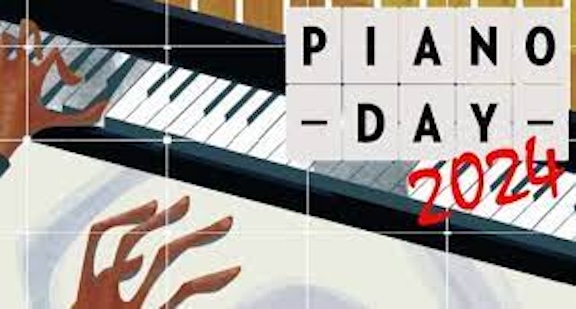
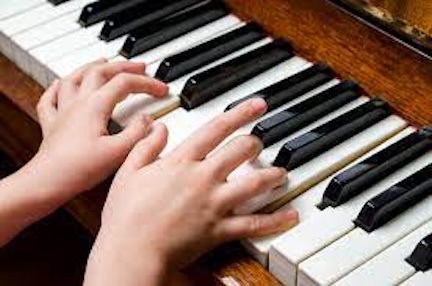
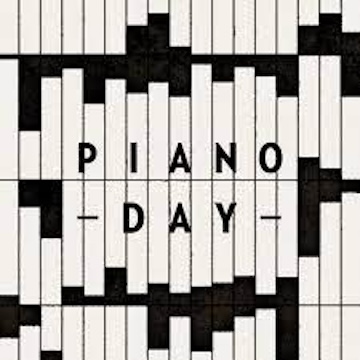







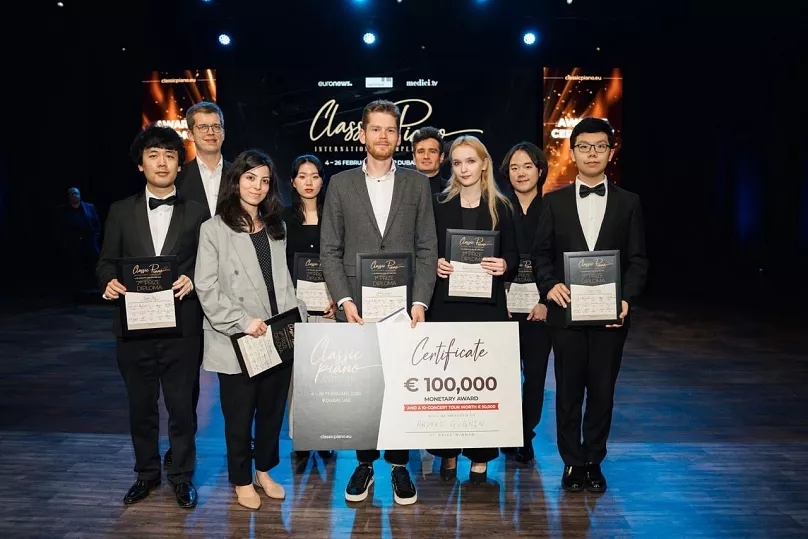







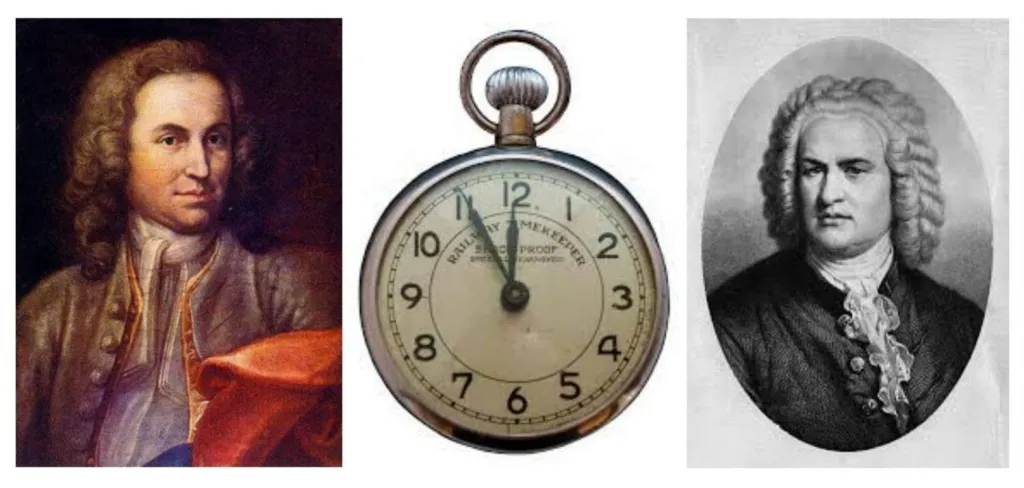

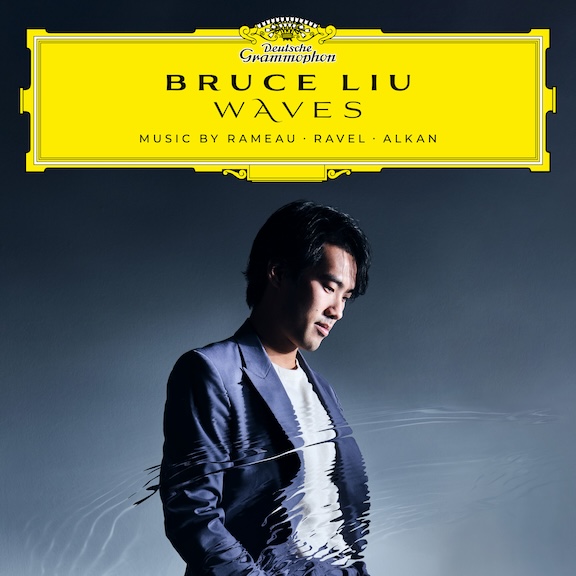


Watch ‘The Last Repair Shop’ — the Oscar-winning short documentary about music education
2 Comments
PLEASE HELP THE EAR. IF YOU LIKE A CERTAIN BLOG POST, SPREAD THE WORD. FORWARD A LINK TO IT OR, SHARE IT or TAG IT (not just “Like” it) ON FACEBOOK. Performers can use the extra exposure to draw potential audience members to an event. And you might even attract new readers and subscribers to the blog.
By Jacob Stockinger
The beautiful and animated face of the young girl comes on the screen with a violin, smiles and says simply, “I love the violin.”
And we as viewers fall in love right then and there.
“The Last Repair Shop” just won the 2024 Oscar for Best Short Documentary. The 40-minute film, released in 2023, is now available to watch on YouTube.
It is a feel-good, feel-guilty story about the last shop to repair free musical instruments offered students in the Los Angeles public schools. But it is also a meditation on things that are broken– and not just musical instruments but also people, schools and politics.
It is really a story about growing up; about adults making art matter to young people; about the role of public education at a time when it keeps getting attacked by ideologues as well as stingy legislatures, city councils, school boards and, ultimately, voters.
Here is a capsule summary: “Since 1959, Los Angeles has been one of the few United States cities to offer and fix musical instruments for its public school students at no cost.
“Those instruments, numbering around 80,000, are maintained at a Los Angeles downtown warehouse by a handful of craftspeople.
“The film profiles four of them, each specializing in an orchestra section, as well as students whose lives have been enriched by the repair shop’s work. The film concludes with a performance by district alumni.”
It sounds irresistible — and it is.
Here are some more background and particulars — including other awards and honors — from Wikipedia:
https://en.wikipedia.org/wiki/The_Last_Repair_Shop
If you don’t have time right now to watch the whole film, the two-minute trailer is at the bottom. But if you go to YouTube yourself, you can also read the heart-warming and perceptive comments from other viewers:
What do you think of the movie?
How did you react?
And what do you think about the importance of music education in schools?
The Ear wants to hear
Share this:
Tags: #BlogPost, #BlogPosting, #FacebookPost, #FacebookPosting, #YouTubevideo, 2023, 2024, Academy Award, Academy of Motion Picture Arts and Sciences, adult, Africa, alphabet, alumni, America, AMPAS, animarted, Apple, Arts, Asia, asian, attack, audience, available, award, Bach, background, Baroque, beautiful, beauty, Beethoven, Best Short Documentary, Bing, black, brass, broken, capital, Cello, Chamber music, childhood, China, choral music, cinema, city councils, Classical music, comment, composer, Concert, concerto, Craft, craftspeople, documentary, downtown, Early music, Education, Europe, face, Facebook, feel, feel-good, feeling, film, fix, free, globe, good, Google, Google Alert, growing up, guilt, guilty, hear, heart-warming, Hollywood, honor, ideologue, importance, instruments, Jacob Stockinger, Japan, Johann Sebastian Bach, LA, Latino, Legislature, link, live, lives, Los Angeles, Love, Ludwig van Beethoven, Madison, Madison Symphony Orchestra, Meditation, Microsoft, movie, Mozart, Music, Music education, musical instruments, now, opera, Orchestra, Oscar, particular, People, perceptive, percussion, Piano, Politics, profile, public education, public school, react, read, recorded music, recording, repair, school, school boards, screen, share, shop, short documentary, society, Sonata, South America, state legislature, stingy, students, symphony, tag, teachers, The Ear, The Last Repair Shop, time, United States, University of Wisconsin–Madison, US, Viola, Violin, vocal music, voter, want, warehouse, watch, Wikipedia, winds, Wisconsin, Wisconsin Chamber Orchestra, Wisconsin Youth Symphony Orchestras, Wolfgang Amadeus Mozart, world, WYSO, you, young girl, young people, YouTube